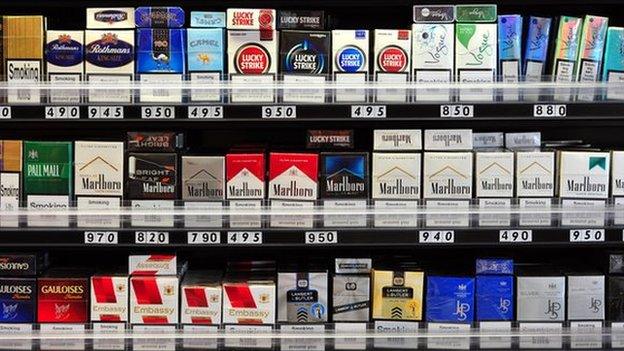Smoking ban under spotlight after Melbourne prison riot
- Published
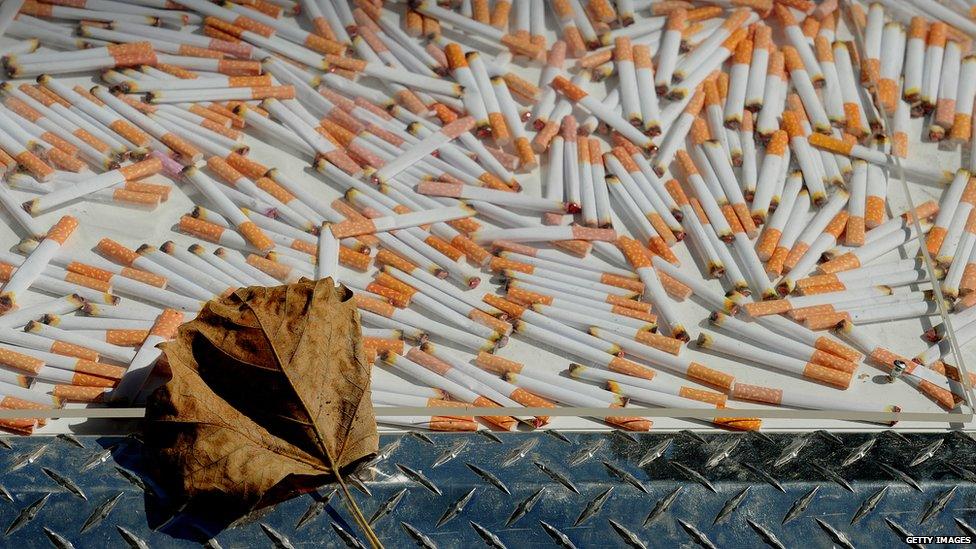
Australia has worked hard to discourage people from smoking
Australian experts are split over whether smoking bans are a crucial advance in prison health or "a bridge too far" that can only spark unrest.
On Tuesday, hundreds of prisoners lit fires, broke walls and smashed windows in a 15-hour riot at a Melbourne prison in what authorities believe may have been a reaction to a smoking ban at the remand facility.
It was one of the worst prison riots in recent memory and authorities and commentators moved quickly to either condemn or support the state-wide prison smoking ban.
Western Australian Corrective Services Minister Joe Francis says his state won't be following the Victorian model yet.
Addictive
He says the riot affirmed his decision to reject calls from prison officers for a full ban on smoking in his state's prisons, where inmates are still permitted to smoke in designated outdoor areas.
"As a former smoker, I can tell you it's a bloody difficult habit to kick," he told a Perth radio station.
He says many prisoners are already going "cold turkey" on drug or alcohol addictions, are separated from their family and often suffering mental health issues.
His prison officers are "bitterly divided" on the issue and have warned him a ban could lead to prisoner riots.
"My gut instinct is that banning smoking in prisons is a bridge too far for many people," he says.
"Prisoners are sent to prison as punishment not for punishment."
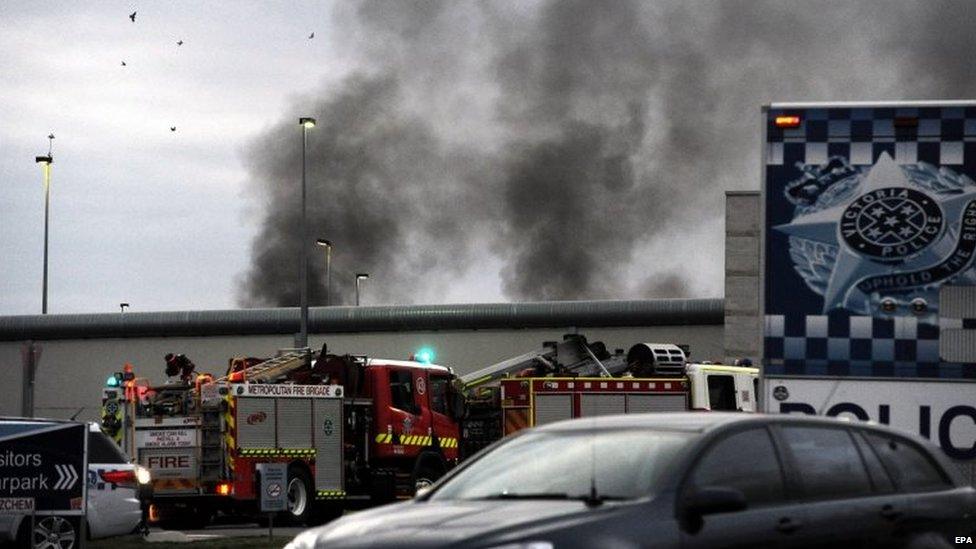
Reportedly angry about an imminent smoking ban, Melbourne prisoners staged a major riot
Australia has led the world in anti-smoking actions, such as the introduction of plain packaging for cigarettes.
Smoking rates for adults have almost halved since 1980 to 13%.
In contrast, up to 80% of prisoners smoke, say health experts, at great cost to their health, and to the health of prison staff.
Smoke-free prisons are already in place in Tasmania, Queensland and the Northern Territory and will soon be introduced in New South Wales.
They are also common in prisons in New Zealand, Canada and parts of the United States.
Full smoking bans are also on the agenda in Britain following a recent High Court ruling in support of an inmate complaining about the health impact of second-hand smoke.
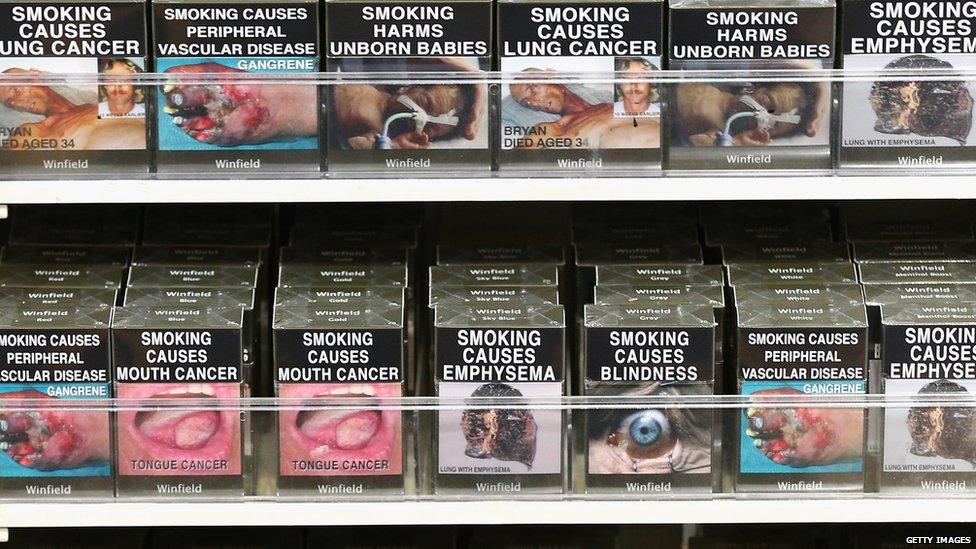
Australia has led the way on the introduction of plain packaging and health warnings
Human rights academic Dr Bronwyn Naylor says smoking in prison is a problem for everyone inside.
But she argues a total ban on smoking stops them engaging in an activity that is lawful in the community and which provides some pleasure and personal freedom in an "otherwise highly controlled environment".
Bans could put parole eligibility at risk if prisoners relapsed - like most smokers do at some point - and they raise management issues in prisons.
"International experience tells us that when we make something illegal that people want, we can end up with black markets, stand-overs, violence etc," Dr Naylor told the BBC.
Desperate measures
"If people in the community are allowed to smoke, subject to restrictions but in their homes particularly, then the starting point should be that prisoners can too," she says.
In Tasmania, authorities reportedly withdrew teabags from prison canteens after prisoners resorted to smoking tea leaves mixed with nicotine patches to quench their addiction.
Cancer Council Victoria, which helped Victoria's prison system prepare prisoners for the ban in that state, says the potential health benefits outweigh the negatives.
One recent US study showed that prisons that had implemented smoking bans had recorded a 9% reduction in smoking-related deaths, says the council's director Dr Sarah White.
"Prisoners are far more likely to have serious health problems than the general population, and smoking only worsens these health inequities," she told the BBC.
Dr White says concerns about human rights and freedom of choice are more complex when it comes to products like tobacco.
"There's no such thing as free choice when you're addicted (to something)," she says.
Marie McInerney is a Melbourne-based writer specialising in health issues.
- Published1 July 2015
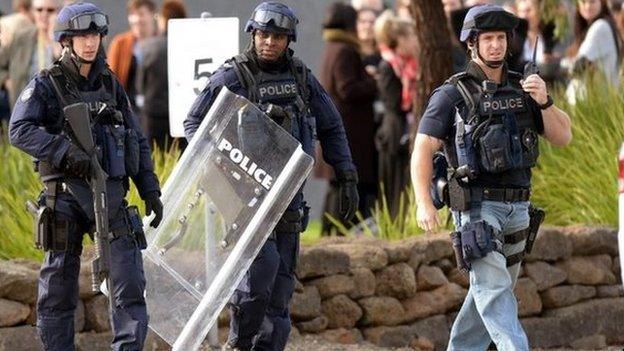
- Published1 June 2015
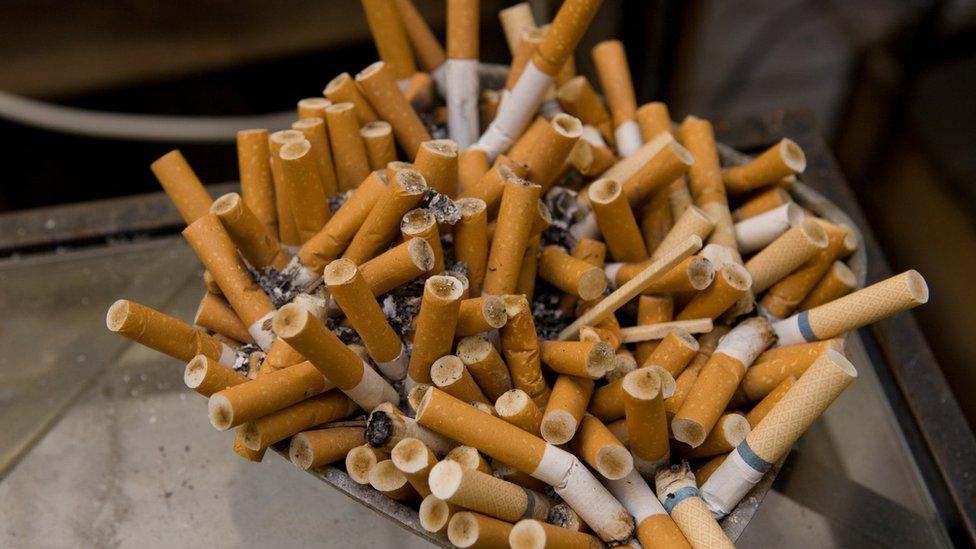
- Published22 May 2015
